Tessy Oliseh-Amaize, the sister of Nigerian football legend Sunday Oliseh, is quickly making a name for herself in the global fashion world. As the founder of the Tesslo fashion brand, she’s blending her background in science with a deep appreciation for African culture, creating designs that are as innovative as they are visually striking.
Drawing inspiration from her scientific background and a keen eye for classic aesthetics, Oliseh-Amaize is redefining the way traditional African wax print ankara fabrics are viewed in modern fashion. Her designs—showcased in her celebrated Africa to the World collection—are a fusion of mathematics and craftsmanship, bringing an intellectual, yet artistic approach to fashion.
Each piece in the collection is meticulously crafted, taking between four to eight weeks to complete. Oliseh-Amaize uses carefully calculated geometric shapes to create optical illusions of depth, producing what she describes as “four-dimensional” designs. Her approach is deeply influenced by mathematical principles, including the Pythagorean theorem, which she says guides her process of shaping and structuring garments.
“Fashion is mathematics,” says Oliseh-Amaize. “You need to think in shapes, to calculate dimensions that don’t even exist. Every design is a form of mathematical expression.”
One of the standout pieces from the collection is the Pyramids dress— a knee-length garment made from one of the most popular ankara fabrics. Drawing inspiration from the majestic Pyramids of Giza, the dress features pyramid-like geometric shapes arranged in alternating directions, a testament to Oliseh-Amaize’s intricate understanding of geometry.
Another key piece, the Mpi varsity jacket, offers a modern twist on a classic design. The jacket is adorned with rows of protruding cones, a nod to traditional Igbo culture in Nigeria. In Igbo culture, these horns are symbolic in ceremonies such as weddings and chieftaincy titles, and even serve as musical instruments. For Oliseh-Amaize, incorporating these cultural elements into her fashion is a way of blending tradition with innovation.
“The real beauty of Mpi lies in the way I’ve manipulated the fabric to create the horns,” she explains. “Each one of those cones was strategically placed to form a powerful, clustered visual effect. It’s the result of geometrical manipulation, bringing cultural heritage into contemporary fashion.”
Oliseh-Amaize’s bold approach to fashion, combining the realms of science, culture, and design, is not only making waves in the U.S. fashion scene but also giving a fresh, innovative perspective to African-inspired fashion worldwide. Through her work, she continues to bridge the gap between the ancient and the modern, proving that fashion is far more than just fabric—it’s a movement, a language, and a statement of culture and intellect.
As Tessy Oliseh-Amaize continues to push boundaries in both the world of fashion and mathematics, her Africa to the World collection is set to change the way we perceive not just African designs, but the very concept of fashion itself.
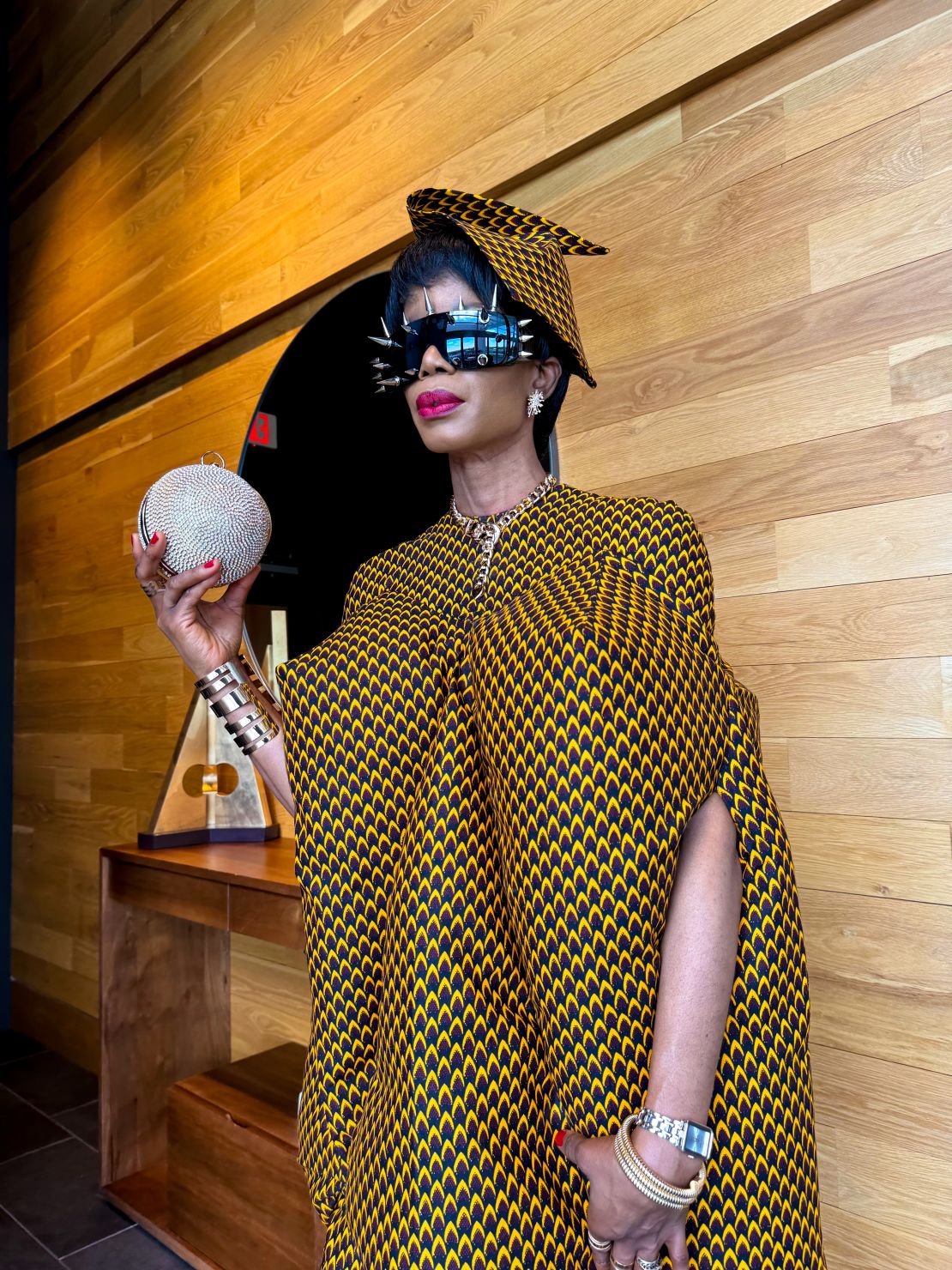
Tessy Oliseh-Amaize wearing her “Pyramids” design. Tessy Oliseh-Amaize
“Taking it to the next level”
Oliseh-Amaize’s design journey started out in the UK, at Middlesex University London, where she studied Fashion Product Management at the start of the millennium. A major break came after she returned to Nigeria and was crowned the country’s best designer at the 2006 Nigerian Fashion Show competition.
She began designing for TV shows, and eventually relocated to the US, which she said “was like starting afresh.” Unlike Nigeria, where there’s a ready demand for ankara clothing, she had to prove her creativity to an American clientele, which meant “taking it to the next level.”
Now based in Washington, DC, her eye-catching designs are increasingly in the spotlight. Last September she was invited to close the Ankara Festival Los Angeles, which celebrates African fashion, and her works were also shown at the Congressional Black Caucus and Philly Fashion Week that month.
After the Ankara Festival, she said in a statement, “Outside Africa, when people hear “African prints,” it is as if the expectation is that it’s not truly African unless it looks primitive or poorly made. I’m rebelling against that. African fashion is rich, diverse, and deserves to be seen as sophisticated and high-quality.”
It’s a stance that’s earning her celebrity supporters. Folake Olowofoyeku, star of US sitcom “Bob Hearts Abishola,” wore Tesslo’s “Hollywood” dress at the Ankara Festival, a design inspired by old-school Hollywood glamour, with sleeve cuffs shaped like mid-century lamps. Oliseh-Amaize has also received a commission by celebrity stylist J. Bolin for one of his high-profile clients.
As Oliseh-Amaize establishes her own identity, she is stepping out of the shadow of her famous brother, who played for European soccer teams including Ajax and Juventus in 1990s and 2000s, as well as playing for and managing Nigeria’s national team.
Growing up, “Everyone calling me Sunday Oliseh’s sister didn’t mean I had it easy,” she told CNN, saying that she would be overcharged when buying equipment, because people assumed she had money. “I had to work extra hard to get things,” she added.
“Fashion Professor”
Now, Oliseh-Amaize is helping younger designers through her “Fashion Professor” project. She has held 35 mentoring sessions on Instagram about everything from understanding different fabrics to knowing how to bill clients, teaching young designers to navigate the industry and to aspire beyond Nigeria.
“I looked at how I could inspire the next generation of fashion designers within and beyond Nigeria and decided to mentor them and help them avoid my own mistakes while charting their own unique paths,” she explained.
Her innovations in ankara designs come at a time when more Western designers are exploring the fabric. Oliseh-Amaize says they have the opportunity to do so because they can more easily access funding, which is not always the case for Nigerian designers.
She emphasizes that African designers should not limit their thoughts to designing or selling to only Africans, and Oliseh-Amaize would like to see a time when a Nigerian brand can sell out in international department stores like Harrods or Macy’s.
While her fashion creations are deeply rooted in Africa, Oliseh-Amaize insists that her identity as a designer goes beyond that. “I don’t want to be put in a box and labeled an African designer,” she said. “I want to be identified as a global brand designing for the global market. This is what would make me fulfilled.”








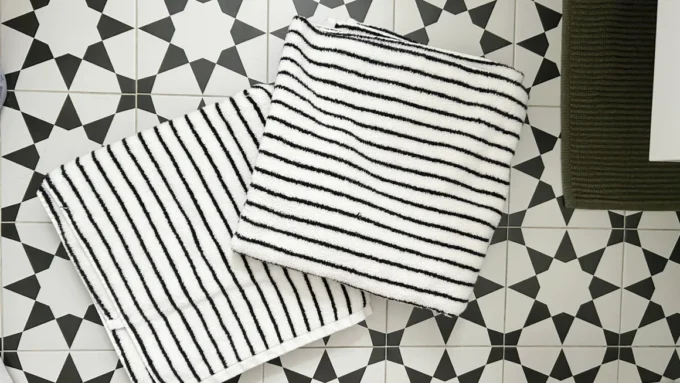
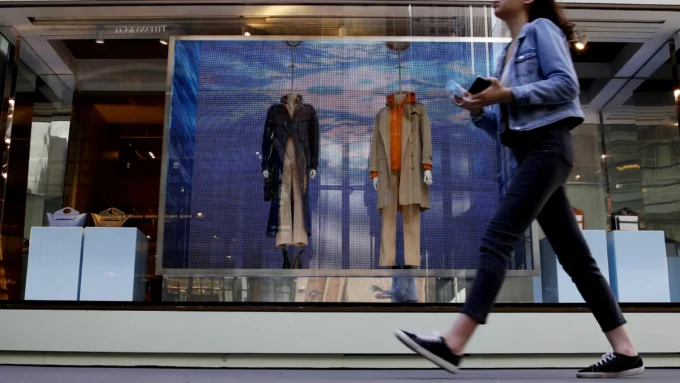
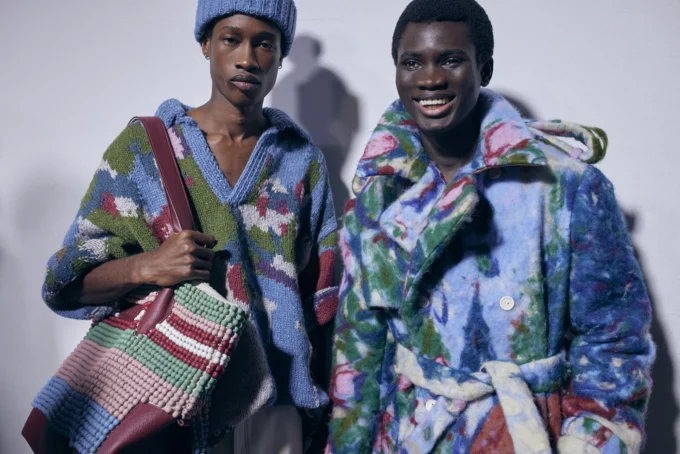
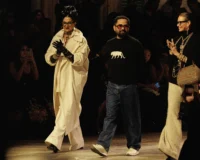

Leave a comment